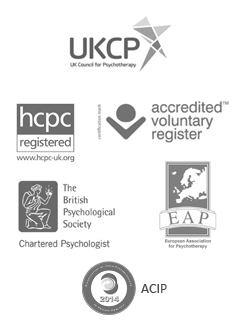When Faith Is an Issue
Problem from the Reader
I am a man who is 31 years older. Nobody has my respect. I don’t see how anyone can be trusted because of the many views I’ve had throughout my life. Once their effectiveness is over, individuals take what they need from others and discard it. I will always want to get close to one, just like the rest of humanity, but I don’t think that will ever be possible given my inability to trust anyone. How can one develop confidence without experiencing the pain again?
The Psychologist’s Response
While confidence can be one of a relationship’s most crucial components, it can also be its most detrimental. However, it’s not all that unusual for you to find it difficult to trust another. There are many potential causes for this complexity in trusting individuals. The most typical causes of this are prior bad relationships that either helped the person develop fears of being hurt or just reinforced concerns that were already present or learned. We are all aware that faith begins quite young for all of us when we are infants and reliant on our caregivers for sustenance, protection, and comfort. We occasionally overattach to our parents of the same sex and not form a trusting relationship with people of our own gender. Our ability to trust others in the future may be impacted by those around us failing to take care of us. In close associations, failing to learn to respect can result in emotional distance. The good news is that we may learn to trust again even if we do not do so at a young age.
The first step in regaining our ability to trust is to realize that it is ingrained in all of us to have a sense of trust and attachment to different people. I think this needed persists despite previous relationships being hurt. It does, however, put us in a situation where we want to believe persons but are hesitant to act. We want to get close and personal, far from our grief, but we are afraid to take any action. Unpleasant thoughts of vulnerability arise when we realize that we must put our trust in others. Being resilient is a very challenging situation for us. Some of us prefer to feel secure than exposed. I observe that many people give up being content and attached in favor of being healthy and alone.
I believe that in order to advance, we must become willing to put ourselves at hazard. We may get hurt again, which is a hard reality to accept. But occasionally, that is the result of devotion. For many of us, we must understand that even though being hurt causes great pain, it won’t eliminate us. Although it will be challenging, we didn’t perish. We really need to have faith that we will live a breakup and make it out okay in the end. This does take some time, so it’s important to start grieving and processing the loss first. Once you accomplish this, you’re prepared to move on to the following phase.
Try Website Coaching: Get Personalized Matched
( Please read the crucial explanation below. )
Here are some pointers to help you along the way:
- Take your time.
- Take your time, for example. We require time to physiologically return after being hurt and experiencing a reduction. We require time and space to sorrow, put things in perspective, and heal. The desire to immediately resume a relationship with that person or one new may become overwhelming when we are suddenly overcome with feelings of loneliness. We require some only time to be by ourselves. This is frequently a long time during which we develop significantly. Give yourself permission to develop in that way.
- Stay secure.
- This shouldn’t melody in conflict with what I said earlier about being safe. The idea of making healthier decisions about who you choose to be resilient with is more what I’m referring to these. It will only become more challenging for you over time if you just traumatize yourself in a negative relationship after another. If you don’t feel secure with the other people, it’s impossible to put yourself in a new or existing situation and restore confidence. We must carefully consider the circumstances we put ourselves in before deciding whether they are the best ones for us to be in or return to. Before they can even start talking about rebuilding believe, some couples I work with in which one man has cheated frequently need time to heal and then to feel safe with the other individual. I frequently advise against going again if you can’t go back to a condition that can make you feel healthy.
- Get honest.
- Finally, be prepared to discuss your doubts and worries when starting a new relationship. To give you both a chance to try and overcome your objectives, been honest about them and set your ideas on the table. With the right people, you can practice being resilient here. Believe it or not, sharing and being resilient with others can really lead to the development of trust.
Please review the Important Disclaimer.
https://askthepsych.com/atp/2015/11/23/when-trust-is-a-problem/
To consult a doctor, all copyrights for this content are reserved.
Getting Motivated to Work
Query Your Own Problem! Problem from the Reader Since I lost my job a few months ago, I haven’t been able to muster …
Associations and Borderline Personality Disorder
Photo taken by Tedeytan at http :// flic.kr / p / RRxBWN- Just for show. Request a Question of Your Own! Problem from the …
When Confidence Is an Issue
Lars Plougmann’s photo is available at http :// flic.kr / p / 6zyNNg for illustration only. Ask Your Personal Issue! …

